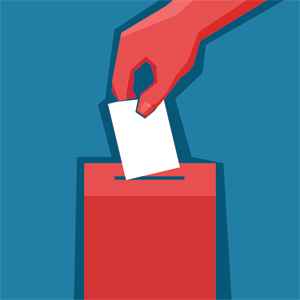Ballot measures give felons the right to vote, overturn Jim Crow-era jury law and legalize marijuana

Beyond the fight for Congress, voters across the country were presented with major criminal justice reform initiatives on Tuesday's ballot.
In one of the closest-watched initiatives of the night, Florida voters extended the right to vote to 1.5 million residents convicted for felonies.
The law will re-enfranchise 10 percent of the state’s population, including one in five black adults. Florida was one of three states that banned convicted felons from voting for life, a Jim Crow era law. Individuals could petition to have their rights restored, but that process became particularly onerous under outgoing Gov. Rick Scott, who is currently leading in the vote count to unseat incumbent Democratic Sen. Bill Nelson. The race is too close to call.
Voters in Louisiana voted on two criminal justice issues. The state will now require unanimous jury verdicts for felony convictions. Previously, juries could convict with as few as 10 jurors. The only other state to allow for nonunanimous juries in criminal cases is Oregon. Like felon disenfranchisement, these laws also are a relic of the Jim Crow era.
Louisiana voters also banned convicted felons from seeking and holding public office until five years after completing their sentence, unless they are pardoned.
Voters in Florida, Georgia, Kentucky, Nevada, North Carolina and Oklahoma increased the rights of crime victims. Known as Marsy’s Law, it requires law enforcement to locate victims and allow them to be heard at court hearings, even for low-level offenses.
This push was funded by Henry Nicholas III, a billionaire and co-founder of semiconductor manufacturer Broadcom. The law is named after his sister, Marsalee Nicholas, who was shot and killed by an ex-boyfriend in 1983. Six other states already had passed a version of the law, according to the Marshall Project. As of May, Nicholas had spent $25 million on the campaign.
In a closely watched Ohio initiative, voters declined to lower penalties for low-level drug crimes. While many of the criminal justice initiatives on Tuesday’s ballot had bipartisan support, the Ohio initiative was backed by progressives such as the American Civil Liberties Union, George Soros and Tom Steyer, while the state’s Republican establishment opposed it.
Marijuana was on the ballot in three states. Michigan became the 10th state to legalize marijuana for recreational use. Meanwhile, in a rare loss for marijuana advocates, North Dakota voted down a similar initiative. Two conservative states, Missouri and Utah, legalized medical marijuana.
In the Pacific Northwest, Washington state passed an initiative that will require police officers to take mental health and de-escalation training with the hope it will decrease the number of police involved shootings.



